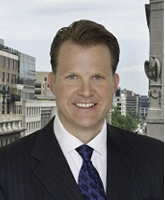In today’s arguments in Universal Health Services Inc. v. United States ex rel. Escobar, the U.S. Supreme Court heard two diametrically opposed views. There was little doubt about which side the justices preferred; their resulting debate was limited to sorting out the details.
The less-favored argument — advanced by Roy T. Englert, Jr. for UHS, a mental healthcare provider accused of fraud under the law — held that the whole notion of “implied certification,” under which suppliers are held accountable for following important rules, is “a theory made up by the plaintiffs’ bar [that] has run amok.”
Mr. Englert had trouble convincing the justices, who kept hearkening back to the venerable origins of the False Claims Act (FCA) — a law signed by Abraham Lincoln in response to Civil War contractors who had billed the Union Army for shoddy equipment and rancid rations.
“The entire idea behind this statute is that [a] demand for payment is a representation,” said Justice Elena Kagan. “The representation is that I’ve given you guns that shoot … and food that can be eaten. … If those are fraudulent claims, I would think that this [case] is the exact same.”
And indeed, the next advocate — David C. Frederick, representing the parents of a Massachusetts teenager who died under UHS’s care — tracked Justice Kagan’s logic closely.
If a supplier submits a bill “without disclosing that it has knowingly violated the government’s material payment conditions, that claim is both false and fraudulent regardless of whether it contains express false statements,” Mr. Frederick said in his opening.
Several justices pressed Mr. Frederick for a workable definition of “material” conditions, but none took serious issue with his tightly argued support for the implied-certification approach applied by the court below, the U.S. Court of Appeals for the First Circuit.
HOW WE GOT HERE
The underlying allegations in Escobar, a case that has yet to reach discovery, are egregious. After receiving care and prescriptions from unlicensed and unsupervised UHS staff members purporting to be doctors, 17-year-old Yarushka Rivera suffered a fatal seizure. Investigations spurred by Ms. Rivera’s parents showed that UHS had billed the federally funded Medicaid program for deficient services provided to Yarushka and others, according to an FCA complaint they filed on behalf of taxpayers.
Ms. Rivera’s parents alleged that UHS had committed fraud by filing for Medicaid reimbursement without disclosing its violation of state licensing and supervision rules. Since the provider never would have been paid if it had disclosed these violations, they argued, its deliberate omissions amounted to fraud via the theory of implied certification.
Whistleblowers such as Ms. Rivera’s parents may sue on behalf of taxpayers under the FCA’s qui tam provision; if they prevail, they can get up to 30% of recovered funds as a reward.
The Escobar case arrived at the Supreme Court as a long-awaited test of the implied certification theory of FCA fraud, which has been endorsed in various forms by most federal appellate courts. Yet the justices seemed to start by simply accepting the theory’s basic viability — even as Mr. Englert argued that UHS should be held accountable for, at most, a breach of contract.
TOUGH SLEDDING FOR UHS
UHS had no duty to disclose its failure to comply with “every jot and tittle” of the “morass” of regulations covering Medicaid, Mr. Englert said — and penalizing such a failure as fraud under the FCA, with its high penalties and provision for triple damages, would be “Draconian.”
“I’m not into every jot and tittle,” retorted Justice Kagan. “I’m into material portions of the contract. That you know, that the guns shoot, that the boots can be worn, that the food can be eaten — and [that] a doctor’s care is a doctor’s care.”
Few justices appeared fazed by the specter, invoked by Mr. Englert, of federal courts clogged with FCA cases based on minor violations of trivial regulations. Instead, Justice Stephen Breyer invited him to make a common-sense distinction between material and non-material violations, contrasting an imaginary regulation that says “paper should be three inches long” with another rule that “that person in your hospital [is actually] a doctor. The first you’d say is not material. The second is material.”
Mr. Englert initially replied that consideration of materiality can come only after fraud has already been found. But then he backed off under questioning from Justice Anthony Kennedy, and appeared willing to allow liability for violations of “essential” rules, which he called “a much, much, much higher standard than materiality.”
By this point, of course, he had strayed into Mr. Frederick’s territory; the only real difference was one of degree. Arguing for Ms. Rivera’s parents, Mr. Frederick quickly drove this point home — a task that was eased by the upsetting facts of his case.
EFFECTIVE RESPONSES
“[T]he key point here — and I don’t think the other side disputes this — is that when you’re providing mental healthcare to teenagers and other children, it should be supervised, and it should be given by people who have the proper license,” said Mr. Frederick. “I don’t think that it takes any great leap of essentiality or materiality or intrinsicness or whatever words the Petitioner wants to come up with. That’s pretty basic.”
Chief Justice John Roberts hammered a bit on Mr. Frederick’s proposed test of materiality: Whether the government could have properly refused to pay a bill if it had known about the hidden violations. As a practical matter, asked the chief, shouldn’t the government let providers know which regulations it considers to be serious enough to trigger this liability?
No, answered Mr. Frederick: To do so would, in effect, create “a roadmap for fraud” by identifying all the regulations that providers could ignore without significant risk. In this case, he noted, a number of different Massachusetts regulations called for licensed and supervised care. Proving that such requirements were material, he said, should not be hard.
Furthermore, said Mr. Frederick, the FCA requires knowing deception, or scienter, an additional safeguard against Mr. Englert’s fears of boundless liability. In this case, it would be “odd to suppose” that UHS was ignorant of the requirements for licensing and supervision. By contrast, innocent errors and trivial omissions would not count as fraud.
Mr. Frederick closed with the tried-and-true Civil War analogy: “I would submit to you that [back then] there was a problem of implied certification because contractors were selling boots that were made out of cardboard, not leather, and guns that didn’t shoot … And that is exactly the same kind of problem that we’re talking about now, over 150 years later, with respect to mental health services that are not being provided by licensed and supervised professionals.”
When he sat down, his argument seemed likely to prevail.
BACK TO JOTS AND TITTLES
Mr. Frederick, however, was not the only person arguing for implied certification: He had backup from the U.S. government in the form of Deputy Solicitor General Malcolm L. Stewart — and Mr. Stewart didn’t fare nearly as well at the lectern.
The trip-up came when Chief Justice Roberts returned to the question of materiality with a hypothetical regulation that required health providers to buy “staplers made in the United States.” The government might not refuse to pay a contractor who knowingly violated that regulation — but maybe it would refuse to pay the entire amount. Could that trigger FCA liability?
To the evident surprise of the justices, Mr. Stewart answered affirmatively.
“If that would be a false claim,” rejoined Chief Justice Roberts, “then I don’t understand the difference between material and immaterial.” Echoed an incredulous Justice Kagan: “What would count as not material?”
“I don’t know if there are any terms that are wholly immaterial,” replied Mr. Stewart, digging himself deeper, “because if there were, presumably they wouldn’t be in the … regulations.”
Mr. Englert’s “jots and tittles” were back: The government’s interpretation, said Justice Breyer, “would make the contractor responsible for having complied with every one of 40,000 regulations — [a set of requirements] the size of the room” in order to be safe from fraud charges.
The concerted horror at Mr. Stewart’s overreach, however, served mostly to highlight an emerging consensus on the bench: While no justice had a fundamental problem with the theory of implied certification, neither did anyone want it to be too rigid or extreme.
The resulting opinion seems likely to enshrine some version of Mr. Frederick’s middle-ground standard — and with that matter settled, FCA cases will shift to their proper battlegrounds of materiality and scienter.

















